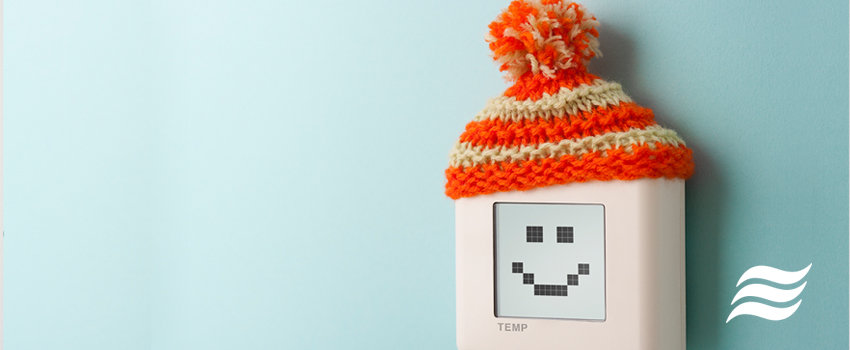
6 Tips to Get Your Furnace Ready for Winter
The cold is starting to creep in once again, and not even a pumpkin spiced latte will fight away the chill.
It’s that time of year again where you’re starting to think about switching on the heating – turning on your furnace after months of neglect and pumping sweet, warm air around your home. But, those months of neglect can sometimes cause the unexpected to happen – and your furnace stops working just before you need it the most.
To stop this from happening, you want to get your furnace ready before the harsh winter ahead starts.
Check out our tips on how to get your furnace prepared for the winter months.
1. Turn on your thermostat
Switch your thermostat from ‘cooling’ to ‘heating’ to kick start your furnace. Only turn it up a couple of degrees higher, so you don’t rush your furnace into too much pressure initially.
If you don’t hear the heating turn on within a couple of minutes of raising the temperature, then there might be something wrong with your HVAC system.
You can check to see if the wire connections are secure in your thermostat by taking off the cover. If you’re unsure of something or think the heating could be failing for a different reason, then now might be a good time to call in a professional.
2. Change your filters
You should already be changing out your HVAC filters once a month, but now is the time if you haven’t done it in a while. Change out all your filters for fresh ones as soon as possible.
Ideally, filters should be changed monthly to prevent any build-up of particles and dust. If your filter is dirty, it can damage your unit, leading to expensive maintenance costs (not to mention poor quality air).
3. Schedule professional cleaning and maintenance for your furnace
You don’t want your furnace breaking down in the middle of winter, so be sure to schedule in maintenance and cleaning as soon as possible. If your furnace breaks down, the likelihood of a professional being free immediately in the middle of winter is pretty slim – and you don’t want to be waiting in the cold until they arrive.
A trained HVAC technician will be able to look for things like damaged coils, whether the pressure is correct, and if the airflow is working.
Your furnace has a lot of components, and it’s important to get a professional to take a look ahead of time to identify any issues and fix them.
4. Make sure all your vents are uncovered
Pay close attention to your heating vents. Are they being blocked by anything? Make sure all your vents are free from any blockages before starting up your furnace.
Obstructions can easily cause your furnace to overheat and breakdown, which is definitely not something you want happening in the dead of winter.
5. Check over your heat exchanger
Your heat exchanger should be cleaned and vacuumed out by a trained professional every year to get rid of any soot build-up or debris.
While it’s being cleaned, the trained technician will check for any cracks or leaks, so dangerous fumes don’t mix with the air as soon as you try to use your heating.
These cracks or leaks should be fixed right away as any leakage could cause illness, and long exposure to these fumes could cause serious illness or death.
6. Check your igniter switch
If you own an older gas furnace, then you should always check your igniter switch before facing the cold winter months. Modern furnaces tend to have an electronic igniter switch that works with a simple press of a button.
If you find that there’s a problem with your igniter switch, call in a professional technician to see the issue. Make sure you call them as soon as possible as a lot of technicians tend to get very busy closer to winter.
Prepare your home
Aside from doing all the checks to your furnace, it would help if you also started preparing your home. Make sure you seal all doors and windows and start replacing any old weatherstripping. This will help keep all the heat inside your home instead of escaping outside.
You don’t want all the lovely heat generated from your furnace to go to waste out of a drafty window! The more insulated and prepared your home is, the less your furnace will have to work. This will help keep it healthy all the way till spring!
